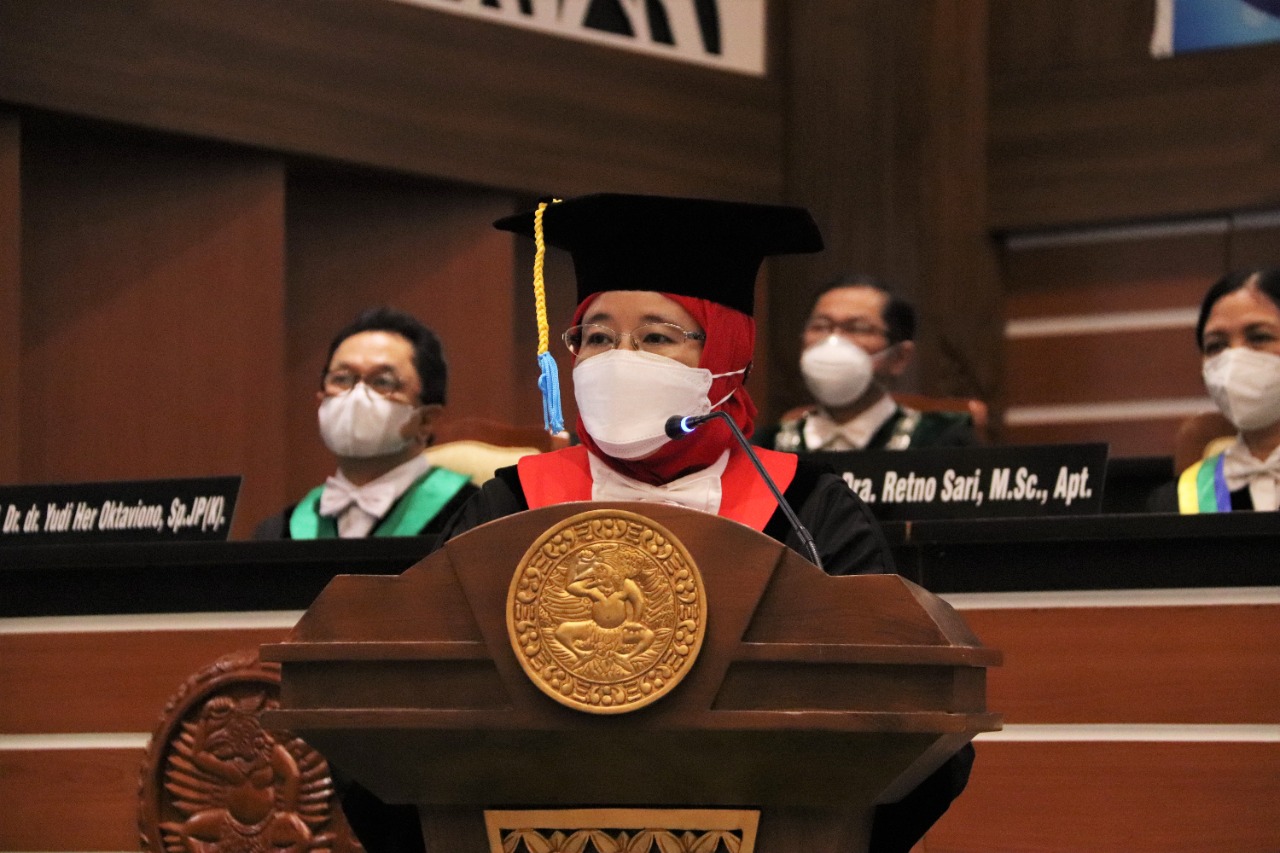UNAIR NEWS – “From UNAIR I studied, for UNAIR I serve, and because of UNAIR I know the world.” It was the opening statement of Prof. Nurul Barizah, SH, LLM, Ph.D., in a scientific oration delivered in her inauguration as a professor in the field of International Law on Wednesday, October 27, 2021. In her oration, Prof. Nurul proposed a fair solution for all countries to face the Covid-19 pandemic.
“The Covid-19 pandemic has paralyzed almost all sectors of life. Over time, the development of innovation through vaccines can be a solution to the challenges of this pandemic. However, the existence of Intellectual Property Rights (IPR) has made many countries face great difficulties in accessing vaccines,” said Prof. Nurul.
According to Prof. Nurul, this right resulted in the worsening of global and national awareness. IPR hinders people from getting their right to health. IPR has led to a lack of essential medicines, treatments, and health technology in various parts of the world, thus hampering the response to the Covid-19 pandemic.
“Departing from these problems and based on the theory of justice, I argue that there is actually a fair global solution. This solution can be used to deal with the current Covid-19 pandemic and other health emergencies. We can refer to IPR based on the Trade-Related Aspects of Intellectual Property Rights ( TRIPs) agreement,” explained Prof. Nurul.
The TRIPs agreement, continued Prof. Nurul, can promote innovation in the health sector, balance the rights and obligations, transfer technology for the advancement and welfare of humanity. TRIPs, included in patents (rights granted by the government to someone for their invention to be used and protected from imitation, ed), will encourage innovation for the welfare of society.
“The patent then provides for an agreement through the promise of technological innovation and the promise of technology transfer that is utilized for mutual benefit. It then can accommodate the interests and balance of developing countries. Furthermore, member countries are also allowed to take the necessary steps to protect health and promote other public interests,” explained the professor from the Faculty of Law, Universitas Airlangga (FH UNAIR).
IPR, according to Prof. Nurul, can also work in harmony with the protection of the right to health. “Because there is already a flexible solution through the TRIPs agreement and The Doha Declaration on TRIPs Agreement and Public Health. The agreement has been amended to include Article 31, its bis and annexes,” she continued.
Prof. Nurul also stated that flexibility is a mandatory license which is an important mechanism. In her opinion, through this mechanism, a country can secure the health of its people, promote competition, and increase the affordability of drugs. “That way, the COVID-19 pandemic can be overcome by accelerating the availability and affordability of medicines, health technology, and vaccines,” she concluded.
Author: Fauzia Gadis Widyanti
Editor: Khefti Al Mawalia





